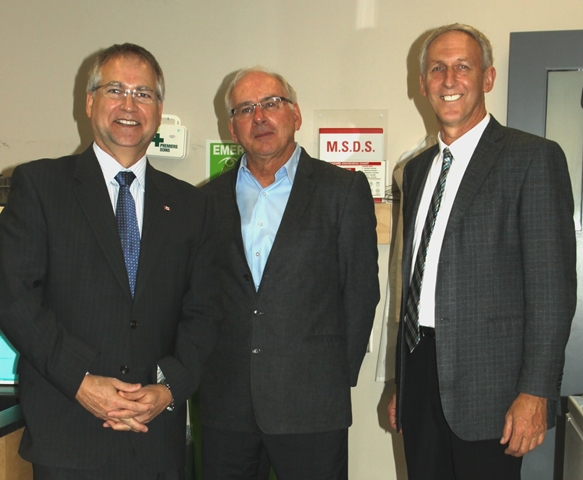Kevin Hall, vice-president (research) and Paul Hebert, a U of G integrative biology professor and director of the Guelph-based Biodiversity Institute of Ontario (BIO), hosted Gary Goodyear, minister of state, on campus Thursday.
Goodyear toured BIO’s newest building addition, funded in part by the Canada Foundation for Innovation, which falls under Goodyear’s portfolio. The facility showcases the world’s largest bioinformatics collection.
They discussed the potential for commercializing technologies developed at BIO that would be suitable for enhancing food security, environmental monitoring, and climate change research.
DNA barcoding, developed by Hebert, has been honed into a multifaceted international research program. Animal and plant species can be identified using only short standardized regions of genetic material. This analytical approach works for all life stages and will eventually allow biologists to rapidly identify species from even a snippet of DNA.
Currently, the technique is being used to detect meat and seafood fraud and alleviate consumer fears. It has also been adopted by regulatory agencies to authenticate and identify other mislabelled food and consumer products.
DNA barcoding has also led to the discovery of hundreds of overlooked species of birds, bats, butterflies, fishes and marine algae.
